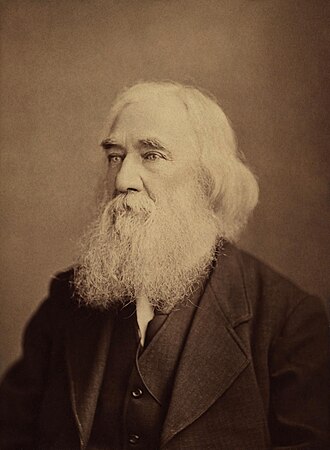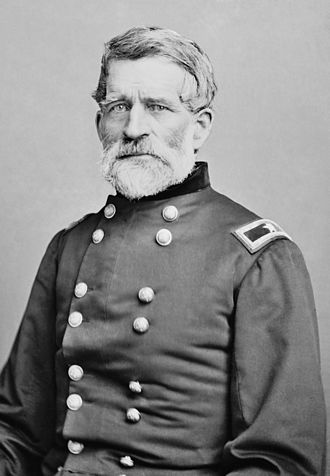Discover Your Roots
SIGN UPDiscover Your Roots
SIGN UPLysander is a compelling male name of Greek origin, meaning "One Who Is Freed" or "liberator." Its roots lie in the elements "lysis" for freedom and "andros" for man. Notable individuals bearing this name include Lysander, an esteemed naval admiral of ancient Sparta, as well as various historical and fictional figures, such as Albert Lysander, Lysander Button, and Lysander Spooner. In literature and media, Lysander is also recognized as a character in William Shakespeare's play A Midsummer Night's Dream, the CoDominium universe, the video game Diablo II, and the Harry Potter series. This name carries a strong and noble connotation, reflecting its historical significance and portrayal in various works of fiction.

Lysander Spooner (January 19, 1808 — May 14, 1887) was a prominent American abolitionist, entrepreneur, lawyer, essayist, political philosopher, and writer. He is closely associated with the Boston anarchist tradition and is recognized for his advocacy of individualist anarchism. Spooner's writings have significantly influenced both left-libertarian and right-libertarian political theory. Born in Athol, Massachusetts, to Asa and Dolly Spooner, Lysander grew up on a farm and was the second of nine children. His career as a lawyer began in defiance of Massachusetts law, as he set up his practice in Worcester without meeting the state's educational requirements for attorneys. This act reflected his opposition to state-sponsored discrimination and monopolistic privileges.Spooner's entrepreneurial spirit led him to establish the American Letter Mail Company in 1844, which competed with the United States Postal Service. Although his mail company achieved commercial success, legal challenges and government regulations eventually forced him out of business. In addition to his entrepreneurial endeavors, Spooner was a fervent abolitionist. His book, "The Unconstitutionality of Slavery," sparked controversy and challenged the claim that the Constitution supported the institution of slavery. He used legal and natural law arguments to demonstrate that the Constitutional clauses did not, in fact, support slavery.Lysander Spooner's multifaceted contributions as an abolitionist, entrepreneur, and legal theorist have left a lasting impact

Lysander Cutler (February 16, 1807 – July 30, 1866) was an American businessman, educator, politician, and Wisconsin pioneer. He played a significant role in the American Civil War, notably commanding the renowned Iron Brigade of the Army of the Potomac. Cutler's early years were marked by a strong desire for education, leading him to become a schoolmaster and later engaging in various business pursuits, including establishing a woolen mill, a foundry, a flour mill, and a sawmill, which made him wealthy. However, financial setbacks, such as the burning of his woolen mill and the economic depression, led him to move to Milwaukee, Wisconsin, to restart his career.During the Civil War, Cutler was commissioned as a colonel of the 6th Wisconsin Infantry and later temporarily commanded the Iron Brigade. His leadership was tested in battles such as the Second Battle of Bull Run and the Battle of Gettysburg, where his unit withstood multiple Confederate assaults. Cutler's bravery and tenacity led to his promotion to brigadier general.Despite facing financial ruin and military challenges, Lysander Cutler's legacy endures as a prominent figure in American history, particularly for his contributions during the Civil War and his impact as a Wisconsin pioneer.

Lysander Farrar (May 2, 1812 – December 25, 1876) was an influential American lawyer and politician hailing from Watertown, New York. He accomplished his M.A. from Union College in 1836, following which he served as the Principal of the Jamestown Academy. In 1839, he tied the knot with Melissa Malvina Keyes, with whom he had five children. Farrar pursued law, eventually gaining admission to the bar and practicing in Rochester. His political career saw him as a member of the New York State Senate (28th D.) during 1862 and 1863. An individual of great repute, his legacy continues to inspire many. The information on Lysander Farrar has been derived from various sources, including The New York Civil List, Biographical Sketches of the State Officers and the Members of the Legislature of the State of New York in 1862 and '63, The New York Annual Register, and A General Catalogue of the Officers, Graduates and Students of Union College from 1795 to 1854.


All images displayed on this page are sourced from Wikipedia or Wikimedia Commons.We use these images under their respective Creative Commons or public domain licenses. Wherever applicable, author attributions and license information are provided. If you believe an image is used incorrectly or outside its license terms, please contact us so that we can review and correct the issue.